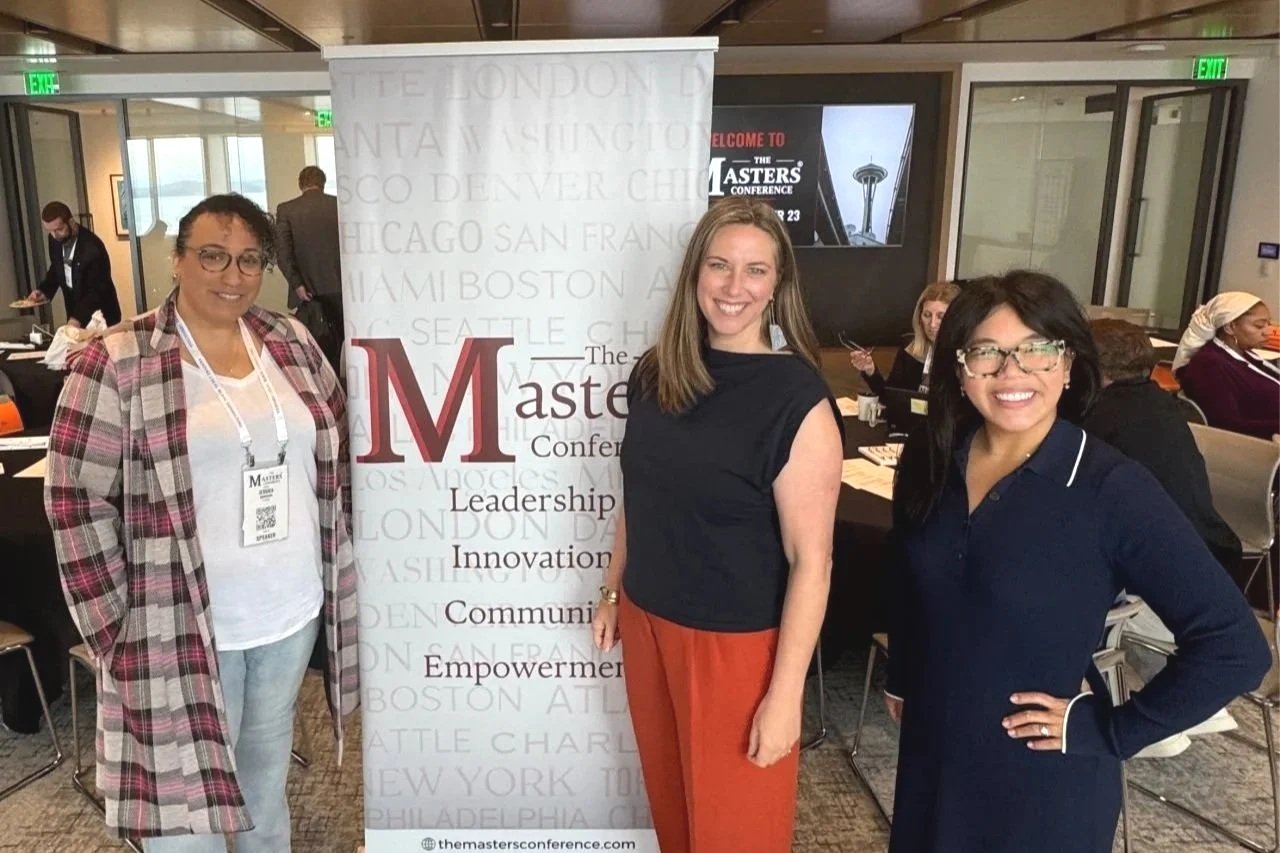The Future of Legal Collaboration: How Humans, AI, and Data Are Redefining eDiscovery
Jessica Robinson, Jane Maranhas, Jessica Tseng-Hasen
At this year’s Master’s Conference Legal in Seattle, our very own VP of Sales, Jane Maranhas, joined legal and technology leaders from T-Mobile and Perkins Coie LLP to explore how collaboration, communication, and artificial intelligence are reshaping the future of legal operations.
The panel looked ahead 5–10 years to discuss how law firms and corporate legal teams will evolve in an era defined by data, automation, and the ever-changing ways people communicate.
How Communication Is Changing Legal Discovery
The discussion began with a focus on how today’s professionals communicate across various platforms, including email, chat, collaboration tools, and even “meme language.” These evolving formats are redefining what counts as discoverable evidence.
“At the core of all of this is how we as humans communicate,” Jane noted. “We’re constantly redefining what a message means and that has major implications for how we discover and interpret evidence.”
This human element, paired with AI and automation, is changing how discovery data is captured, analyzed, and validated.
In the next decade, legal teams will likely need to handle not only traditional documents and emails but also VR meetings, chatbots, emojis, and generative AI prompts as discoverable evidence.
Breaking Down Silos Between Legal and IT
Panelists emphasized that success in the AI-driven era will depend on cross-functional collaboration. Legal, IT, and data teams must work together to ensure that eDiscovery workflows remain transparent, defensible, and efficient.
“If companies don’t create solutions that make remote work as seamless as in-person collaboration, communication breaks down and that’s where costs rise and projects fail.”
Jane echoed this, emphasizing the role of proactive partnerships: “We can’t simply follow where the industry goes we need to help shape it.”
AI Governance, Security, and Validation
The panel also tackled AI governance and data protection, topics at the top of every corporate legal department’s agenda. With generative AI tools increasingly being used inside corporate firewalls, organizations must ensure that sensitive data stays within their security perimeter and that all outputs are validated and defensible.
Redefining the eDiscovery Funnel
Looking ahead, the traditional eDiscovery funnel is shifting. Instead of reviewing millions of documents post-collection, legal teams are beginning to use AI at the investigatory stage, targeting the right data early and narrowing the scope of review.
This change, panelists predicted, will lead to more efficient workflows and new billing models. As automation handles more routine work, the human focus will move to strategy, validation, and oversight.
While AI is transforming legal workflows, the panel agreed that human expertise remains irreplaceable. As Perkins Coie’s Jessica Tseng-Hasen noted:
“Yes, you’ll still have a job. The lawyers who thrive will be creative, strategic, and able to use technology to its full advantage.”
Nebula shares that vision. By combining cutting-edge AI with deep eDiscovery expertise, we’re helping clients bridge the gap between innovation and defensibility; ensuring that technology enhances human judgment, not replaces it.
If you’re ready to see how Nebula’s many features can help meet your organization’s needs, schedule a demo here and chat with Jane!

